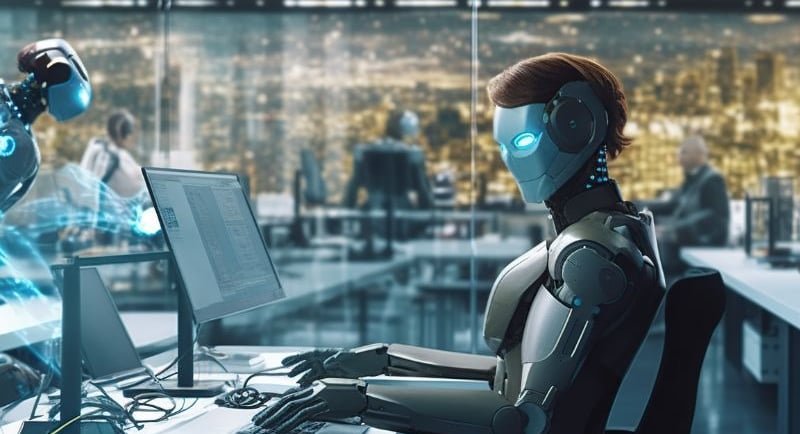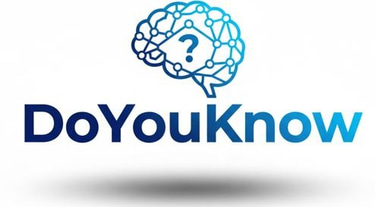Do You Know How Artificial Intelligence Is Affecting Jobs Worldwide
Artificial Intelligence is transforming the global job market, reshaping industries, and automating repetitive tasks. From creating new tech roles to impacting traditional jobs, AI is driving workforce evolution, highlighting the need for upskilling, reskilling, and digital adaptability worldwide.
TECH & SCIENCE
Do You Know Team
7/26/20253 min read


Artificial Intelligence (AI) is no longer a concept of the future—it’s reshaping industries, workplaces, and economies across the globe. From automated customer service to advanced data analytics, AI is transforming the way we work. But how exactly is it affecting jobs worldwide? Are we looking at massive job loss, or are new opportunities emerging? Let’s dive into the multifaceted impact of AI on employment and what it means for workers everywhere.
1. Automation of Repetitive Tasks
AI excels at performing repetitive and rule-based tasks with speed and accuracy. In manufacturing, AI-powered robots assemble products, while in offices, AI tools handle data entry, scheduling, and report generation. While this improves efficiency, it reduces the need for human labor in repetitive roles, pushing workers to develop skills in areas that require creativity, problem-solving, and emotional intelligence.
2. Creation of New Job Categories
Although AI replaces some roles, it also creates new job categories. Positions like AI trainers, machine learning engineers, and data annotators are in high demand. Additionally, AI opens opportunities in AI ethics, robotics maintenance, and AI-driven healthcare diagnostics. As businesses adopt AI, workers with relevant skills are better positioned for these emerging roles.
3. Impact on Traditional Industries
Industries such as manufacturing, retail, and transportation are experiencing the most noticeable shifts. In factories, AI-driven machinery reduces manual labor. In retail, AI chatbots and recommendation systems replace some customer service jobs. Transportation companies are testing autonomous vehicles, which could transform logistics and delivery roles in the coming years.
4. Upskilling and Reskilling Imperatives
AI’s influence on jobs highlights the need for continuous learning. Governments and organizations worldwide are investing in upskilling programs to equip workers with AI literacy, coding skills, and digital proficiency. Reskilling initiatives aim to help employees transition into AI-adjacent roles, ensuring that workforce evolution keeps pace with technological advancement.
5. Gig Economy and AI Integration
AI is transforming the gig economy as well. Platforms like Uber and DoorDash use AI algorithms for route optimization, demand prediction, and customer matching. While this increases efficiency, it also alters income stability for gig workers, making AI both a tool for productivity and a challenge for job security in flexible work arrangements.
6. AI in Healthcare Jobs
The healthcare sector is seeing a mix of disruption and opportunity. AI assists in diagnostics, predictive analysis, and robotic surgeries, reducing the workload for doctors and nurses in certain areas. However, it also creates new roles like AI-assisted radiology specialists, health data analysts, and telemedicine coordinators. AI doesn’t replace healthcare workers entirely but augments their capabilities.
7. AI and Creative Professions
Even creative professions are affected. AI tools can generate music, artwork, and written content, impacting freelance artists, writers, and designers. While some fear job displacement, many creative professionals use AI as a collaborative tool to enhance their output and streamline repetitive aspects of their work. Creativity combined with AI literacy is emerging as a highly valuable skill.
8. Global Workforce Inequality
AI’s impact is uneven across countries and regions. Developed nations with access to advanced technology benefit from AI-driven productivity and new job creation, while developing countries face the risk of widening economic gaps. Jobs that can be automated in low-cost labor markets may disappear, while high-skill AI jobs remain concentrated in tech-forward economies.
9. Ethical and Regulatory Considerations
AI-driven automation raises ethical questions about job displacement, fairness, and worker rights. Governments and organizations are exploring policies to ensure AI adoption doesn’t disproportionately harm certain groups. Regulations around AI usage, labor protection, and ethical AI design are becoming increasingly important in shaping the future of work.
10. Long-Term Predictions
Experts predict that by 2030, AI could automate up to 30% of existing jobs, but it will also generate new opportunities in AI development, cybersecurity, and green technologies. Workers who adapt to AI-enhanced environments, acquire digital skills, and embrace lifelong learning are likely to thrive in this evolving landscape.
FAQs
Q1: Will AI take away all jobs in the future?
A1: No, AI will automate certain repetitive tasks but also create new roles requiring technical, creative, and analytical skills. Humans and AI will increasingly collaborate.
Q2: Which industries are most affected by AI?
A2: Manufacturing, transportation, retail, and customer service are highly impacted, while healthcare, AI development, and creative sectors are seeing new opportunities.
Q3: How can workers prepare for AI-driven changes?
A3: Upskilling, reskilling, and gaining digital literacy are crucial. Learning AI tools, data analysis, coding, and creative problem-solving can help workers adapt.
Q4: Is AI equally impacting all countries?
A4: No, developed nations benefit more due to access to technology and infrastructure, while developing countries may face higher risks of job displacement.
Q5: Can AI coexist with creative professions?
A5: Yes, AI can augment creativity by handling repetitive tasks, helping with content generation, and enabling professionals to focus on high-level creative decisions.
Conclusion:
Artificial Intelligence is transforming the global workforce in complex ways. While it automates repetitive tasks and reshapes industries, it also creates new job opportunities and demands advanced skills. Workers who embrace AI, reskill, and innovate alongside technology will find themselves at the forefront of the future workplace. Understanding AI’s impact on jobs worldwide is essential to preparing for a career landscape that is constantly evolving.
#ArtificialIntelligence #AIJobs #FutureOfWork #JobAutomation #AIImpact #GlobalWorkforce #Upskilling #Reskilling #AIInnovation #TechJobs
Knowledge
Empowering minds with reliable educational content daily.
Newsletter Signup
© 2025 DoYouKnow. All rights reserved.
Stay Ahead of the Trends – Join Our Newsletter
